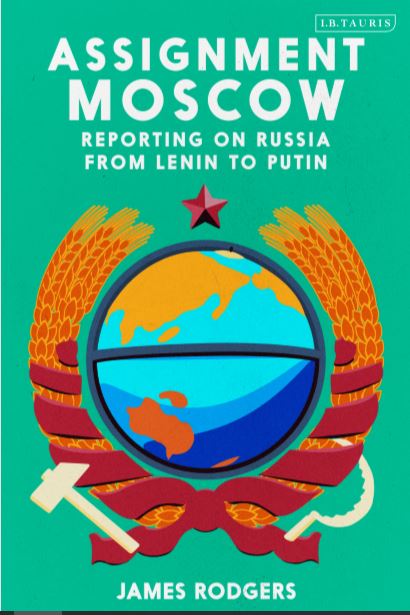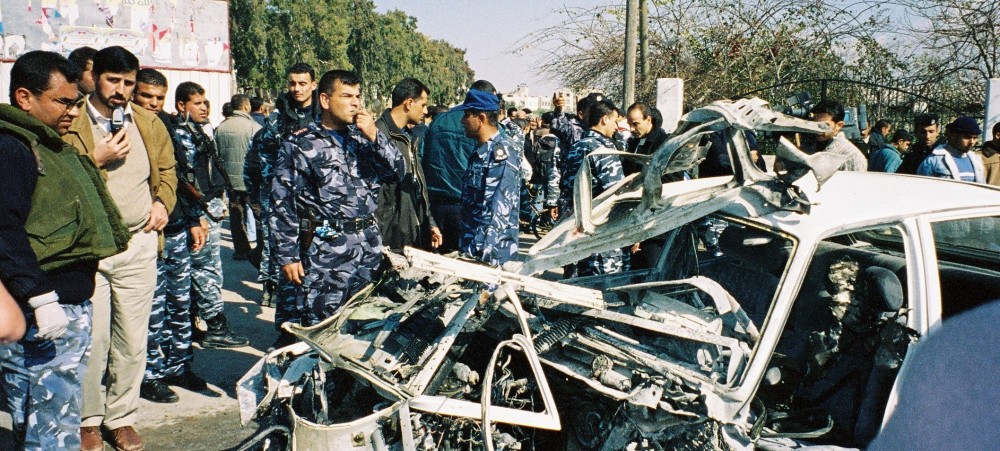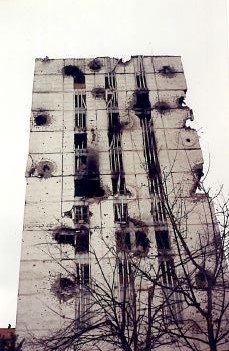
St Basil’s cathedral and the Spassky tower of the Kremlin, Moscow, March 2019. Photo © James Rodgers
This week, 20 years after Vladimir Putin was first elected president of Russia, I wrote for The Conversation about how Russia’s place in the world, and the technology used to tell its story, have changed since. You can read that piece here, and a complete text follows. It contains some of the ideas I explore at greater length in my forthcoming book, Assignment Moscow: Reporting on Russia from Lenin to Putin.
IT WAS A DAY OF CHANGE. After the long Russian winter, spring had come to the north Caucasus. The air was warmer. Passing trucks and boots kicked up dust from the ruins of Grozny. The city centre was now bombed-out buildings and piles of bricks as far as you could see.
It was Sunday March 26 2000. Far to the north, in Moscow, Vladimir Putin was waiting to see if voting in Russia’s presidential election would confirm him in the post he had held in an acting capacity since the retirement of his predecessor Boris Yeltsin at the turn of the year. It did.
In the two decades since, Putin has defined what political power means in post-Soviet Russia. At the same time, Russia has also tried to control and define the way its story is told to the world.
In a sense, that process was already underway in 2000. Grozny, capital of the southern Russian region of Chechnya, had been through two wars in a little over five years. In the first, from late 1994 to 1996, journalists had been given great freedom to report what they wanted. Their access was restricted only by their own sense of risk.
It was different once the separatist conflict flared again in Chechnya in the autumn of 1999. The government in Moscow, then under the leadership of Putin as prime minister, had disliked the negative coverage of civilian deaths during the previous conflict which had resulted from Moscow’s attempts to bring the unruly region back under control.

Russian soldiers in the Chechen capital Grozny, March 2000, the month that Vladimir Putin was elected president of Russia. Photo © James Rodgers
I was there as a correspondent in Grozny that spring day because I had been able to travel there by military helicopter with Russian army minders. In one sense, that was reassuring. Westerners had been kidnapped and murdered, and travelling alone was even more dangerous than it had been before. It was the army, though, that decided the schedule, and we had very little chance to see anything beyond the places they chose to take us, and the people they permitted us to meet.
Something else was changing, too. For the first time, I saw a photojournalist file digital photos from a laptop. I was reporting for TV and radio that day. I could send radio reports via a satellite phone, but TV material had to be sent from a TV station far from the front line, meaning a long drive before it could be transmitted.
Since then, technology has changed the world of international correspondents in many ways. But some things have stayed the same. Throughout Russia’s modern history, its treatment of foreign correspondents has been the story of its relations with the rest of the world.
For my forthcoming book, Assignment Moscow: Reporting on Russia from Lenin to Putin, I have researched the lives and working conditions of Moscow correspondents back to the time of the 1917 revolutions. It is fair to say that their experiences have varied with the political climate.
It was not just the weather that was changing that spring day in Grozny. Yeltsin’s relations with the West are seen now by many of his compatriots as a supine acceptance of US foreign policy. Putin, as he enters his third decade at the summit of Russian power, has chosen to reject and defy.
It has always been true in military and diplomatic affairs that you need not only to act, but to tell your story, too. That has become even more the case in our age, when so many people spend so much time consuming information.
Since 2000, Russia has made great and costly efforts to shape the way it is seen around the world. In 2005, it launched Russia Today, the TV channel now known as RT. It has made extensive use of social media platforms, both to distribute content from RT and other Kremlin-friendly media organisations – and perhaps to interfere in elections.
Within the country, a network of exhibitions “Russia – My History” has been opened to tell citizens which parts of their national story should be particular sources of pride.
With all these official attempts to tell Russia’s story, what hope do correspondents have? The truth is that they still have a great deal of influence. Russia may have spent many millions on RT, but few people watch it. It took a World Cup to polish the country’s image, and to make at least one correspondent wonder if things might change. Continuing diplomatic tensions over Ukraine and Syria, and the poisoning of the former Russian spy Sergei Skripal and his daughter have not won Russia many fans.
For now, Putin’s 20-year story has become one of war and peace with the West. His presidency has already been longer than the great sweep of history which that masterpiece covered. It may go on much longer.











